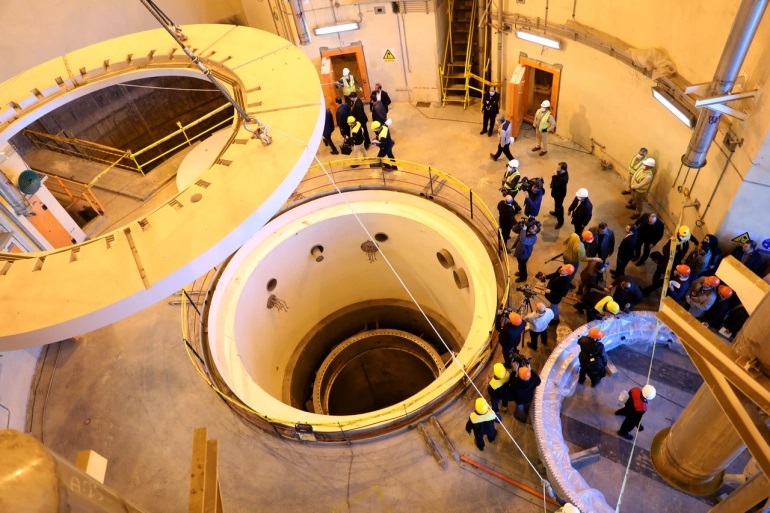Iran has announced its intention to launch a series of “new and advanced” centrifuges in reaction to a recent censure resolution passed by the United Nations nuclear watchdog. This resolution, adopted by the International Atomic Energy Agency (IAEA) board, labeled Tehran as uncooperative regarding its nuclear program. The motion, brought forth by Britain, France, Germany, and the United States, received support from 19 nations, while China, Russia, and Burkina Faso voted against it. Additionally, 12 countries abstained from the vote, and Venezuela did not participate.
The head of Iran’s Atomic Energy Organization has been instructed to initiate several measures, which include the deployment of various types of advanced centrifuges. These centrifuges enrich uranium by rotating it at high speeds, increasing the concentration of the fissile isotope U-235. Despite these actions, the joint statement from Iran’s Foreign Ministry declares that technical cooperation with the IAEA will persist within the framework of Iran’s existing agreements.
Political analysts in Tehran suggest that these retaliatory measures could be reversed if the Western “hostile actions” are withdrawn or if negotiations resume. Among the criticisms surrounding Iran’s atomic program, many fear Tehran’s pursuit of nuclear weapons, a claim the nation has consistently denied.
The resolution emphasizes the urgency for Iran to fulfill its legal obligations under the Non-Proliferation Treaty (NPT), which requires member states to declare their nuclear materials and place them under IAEA control. It calls on Iran to provide “technically credible explanations” for uranium particles discovered at two unreported locations within the country. Additionally, it demands a comprehensive report on Iran’s nuclear endeavors from the IAEA, expected by spring 2025.
The resolution follows IAEA Director Rafael Grossi’s recent trip to Tehran, where he seemingly made progress in negotiations. During this visit, Iran agreed to limit its stockpile of near-weapons-grade uranium, enriched up to 60 percent purity. Experts argue that the West’s actions could create a more conducive atmosphere for negotiations, suggesting that Iran did not initiate a cycle of provocation.
In 2015, Iran signed an agreement with world powers to limit its nuclear program in exchange for the easing of international sanctions. However, following the U.S. withdrawal from the accord in 2018, tensions escalated as Washington reinstated severe economic sanctions, prompting Iran to gradually retreat from its commitments under the agreement.
Iran’s Deputy Foreign Minister for legal and international affairs, Kazem Gharibabadi, has recently warned of serious consequences should the UN Security Council reactivate the “snapback” mechanism—a clause allowing for the reinstatement of sanctions due to Iran’s non-compliance. He disclosed that Iran had formally notified European countries of its intention to withdraw from the NPT if the snapback mechanism were to be activated.
Since 2021, Tehran has notably decreased its cooperation with the IAEA, including disabling surveillance equipment meant to monitor its nuclear facilities and limiting access for UN inspectors. Concurrently, Iran has enhanced its nuclear activities, raising its stockpile of enriched uranium and increasing the enrichment level to 60 percent, significantly exceeding the 3.67 percent cap agreed upon in 2015 and edging closer to the 90 percent threshold regarded as necessary for nuclear weapons development.





